Awareness Survey of 18-Year-Olds - DecarbonizationResults of 34th installment announced
The 34th installment of the Awareness Survey of 18-Year-Olds, launched by The Nippon Foundation in October 2018, was carried out from January 12 to 17 on the subject of “Decarbonization.” When asked about the cause of global warming, two-thirds of respondents cited greenhouse gas emissions associated with human social activity as the main cause, and more than three-fourths were aware of the risks posed by global warming. With regard to the government’s pledge to eliminate greenhouse gas emissions and make Japan carbon neutral by 2050, although 60% of respondents approved of the objective, only 14% believed it was achievable. One of the main reasons for approving of the objective was that it will raise awareness of reducing emissions. In addition, 63% of respondents had positive expectations for renewable energy, with the most promising sources seen as solar (69%), hydroelectric (40%), and biomass (35%)
Notes:
- From the 13th survey, the number of respondents, comprising men and women aged 17 to 19, has been increased to 1,000 from 800. (With the exception of the 20th installment, “Awareness Survey of Society and Country,” all surveys cover respondents in Japan only.)
- In the information below, differences between total amounts and simple sums are due to rounding.
Survey 34. Decarbonization (Results announced on February 25, 2021)
Finding: 66.7% of respondents attribute “Greenhouse gas emissions associated with human social activity” as the main cause of global warming, while 12.3% consider it to be part of “The earth’s natural cycle.” (n = 1,000)
“What do you consider to be the main cause of global warming?”
- Greenhouse gas emissions associated with human social activity – 66.7%
- The earth’s natural cycle – 12.3%
- Don’t know – 21.0%
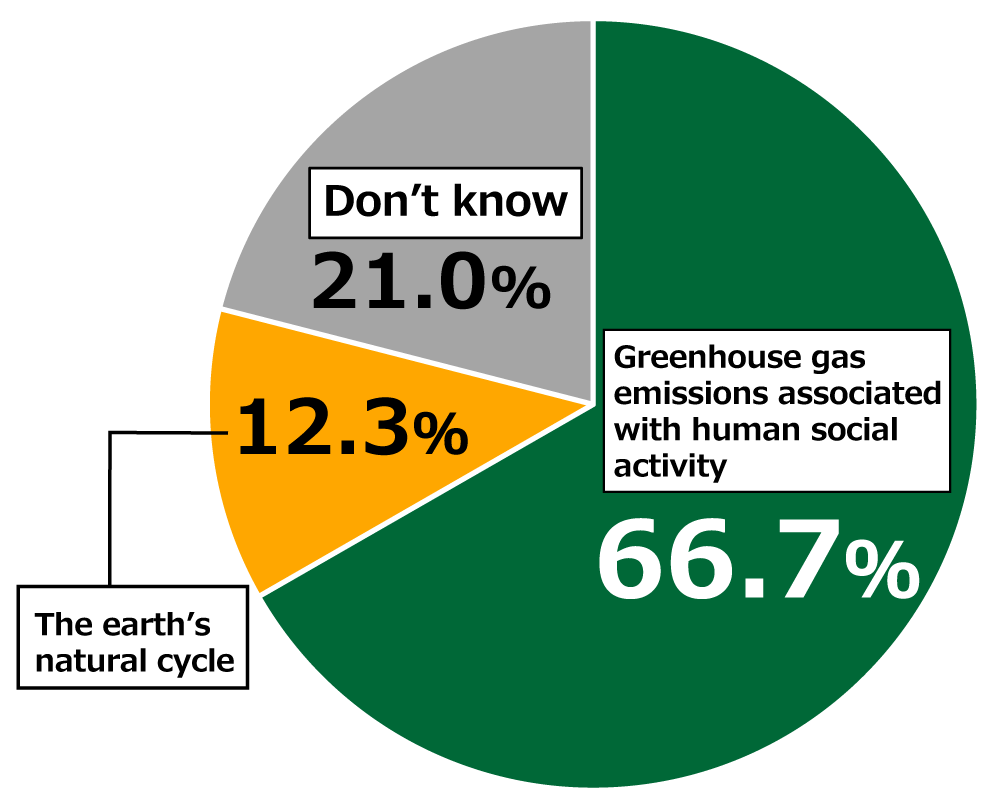
Finding: 77.4% of respondents are aware of the risks posed by global warming. (n = 1,000)
The increase in unanticipated natural disasters including abnormally high temperatures, rising ocean temperatures, high tides, and severe storms is said to be caused by global warming. “Are you aware of these risks posed by global warming?”
- Yes – 77.4%
- No – 22.6%
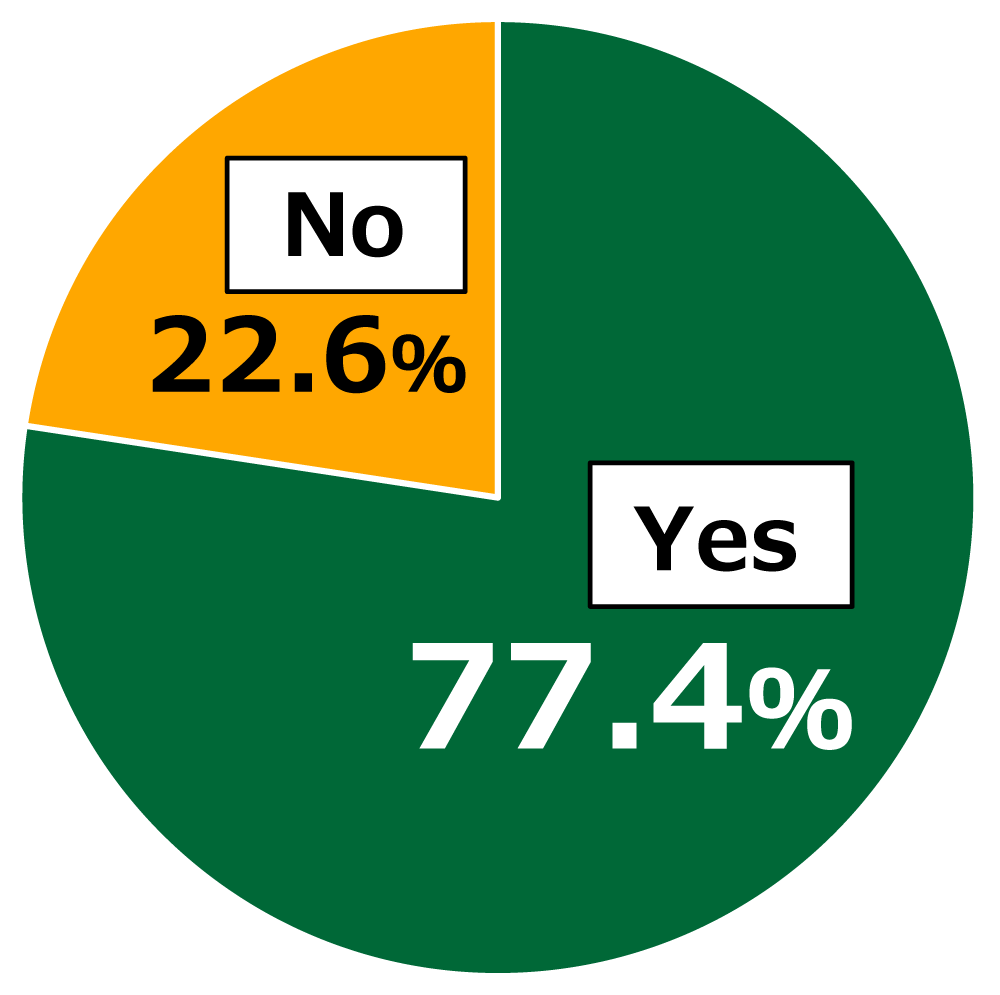
Finding: 73.0% of respondents believe Japan should reduce its CO2 emissions. (n = 1,000)
Accounting for 3.4% of global CO2 emissions, Japan is the world’s fifth-largest emitter of CO2. “What do you think about this?”
- Japan should reduce its CO2 emissions – 73.0%
- It is for social activity and cannot be helped – 15.7%
- Don’t know – 11.3%
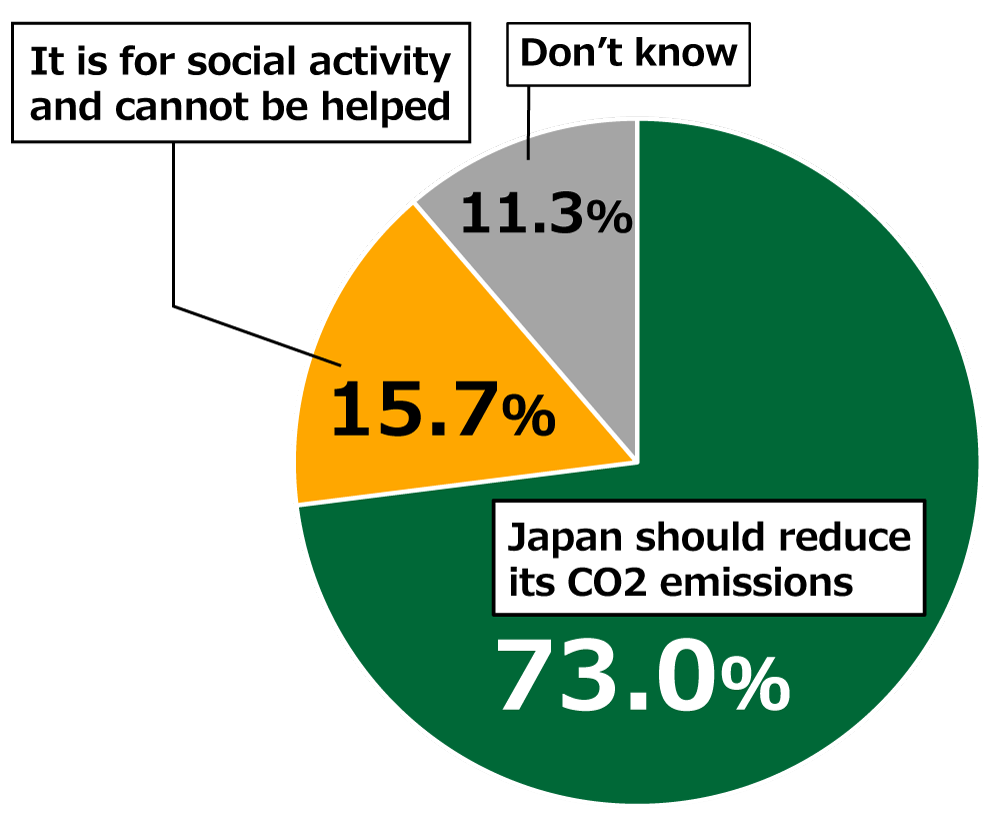
Finding: 60.4% of respondents approve of the government’s pledge for Japan to become carbon neutral by 2050.
“Do you approve of the government’s pledge for Japan to become carbon neutral by 2050?” (n = 1,000)
- Yes – 60.4%
- No – 10.3%
- Don’t know – 29.3%
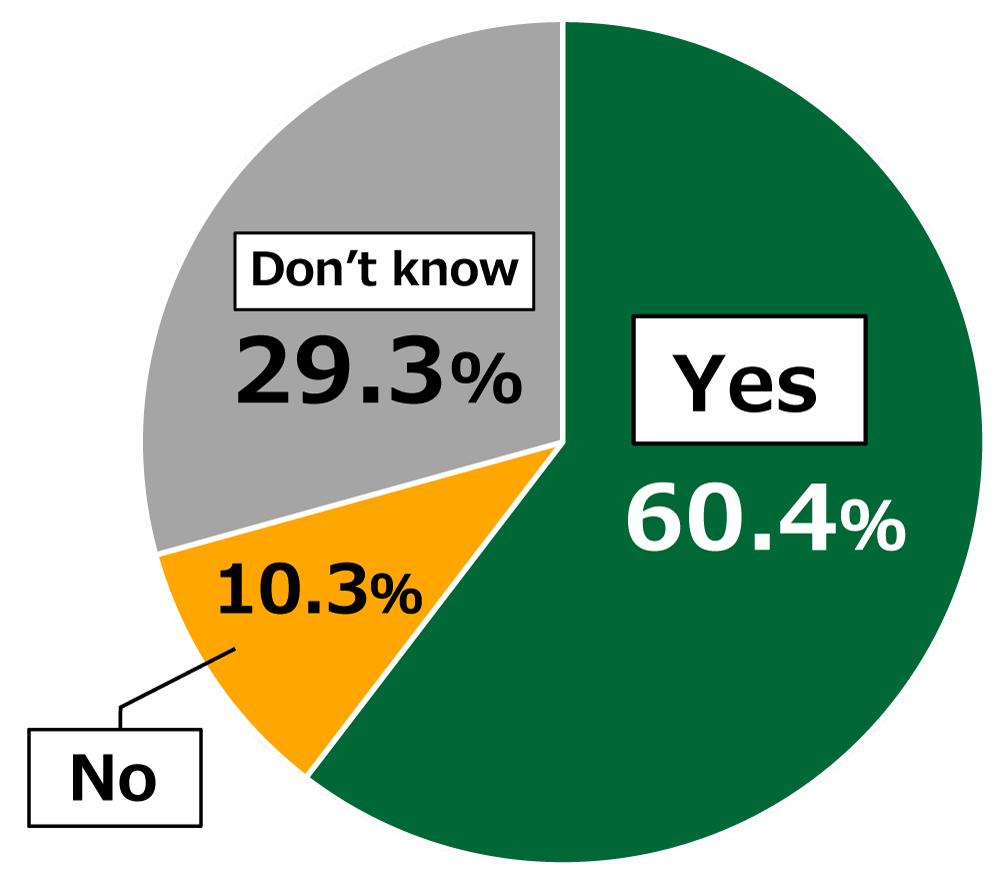
But only14.4% consider the government’s pledge for Japan to become carbon neutral by 2050 to be achievable.
“Do you consider the government’s pledge for Japan to become carbon neutral by 2050 to be achievable?” (n = 1,000)
- Yes – 14.4%
- No – 35.4%
- Don’t know – 50.2%
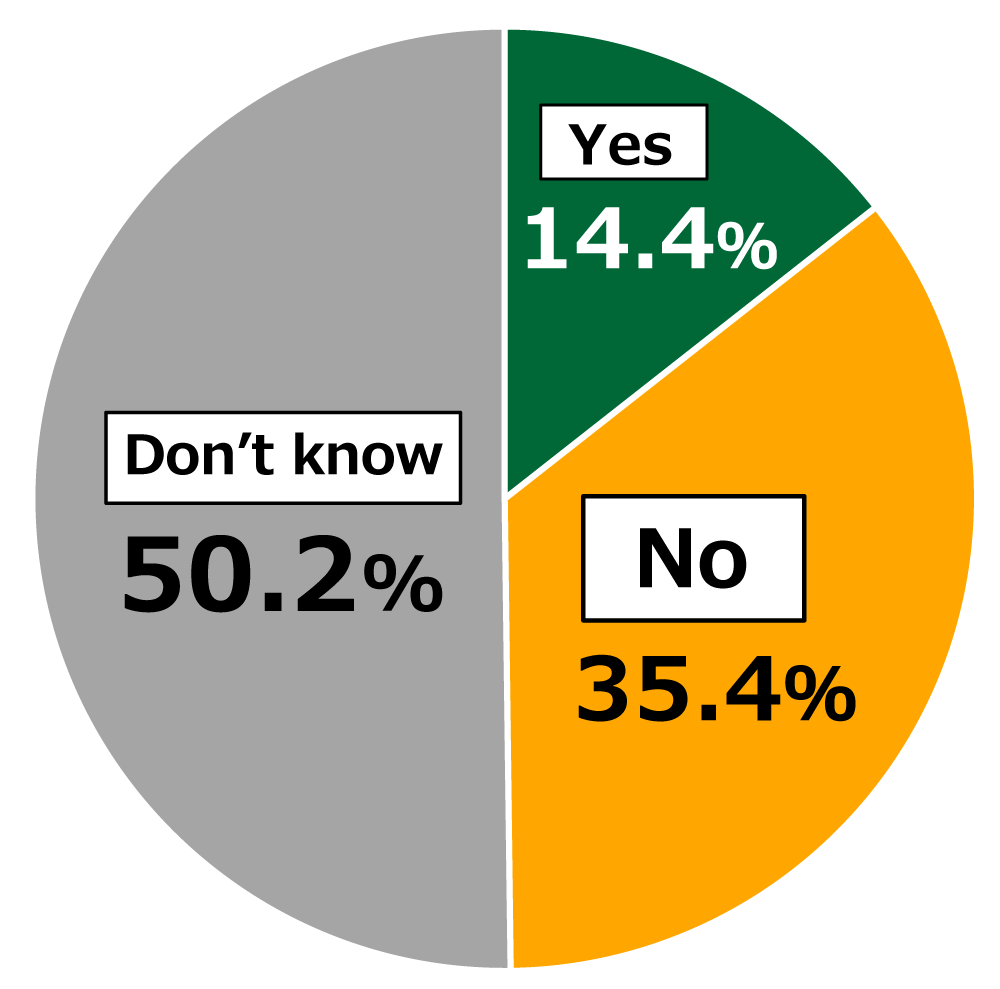
Finding: 62.9% of respondents have positive expectations for renewable energy as a way of achieving a carbon-free society.
The development of renewable energy sources is a focus of efforts to achieve a carbon-free society. “Do you have positive expectations for the future of renewable energy?” (n = 1,000)
- Yes – 62.9%
- No – 11.2%
- Don’t know – 25.9%
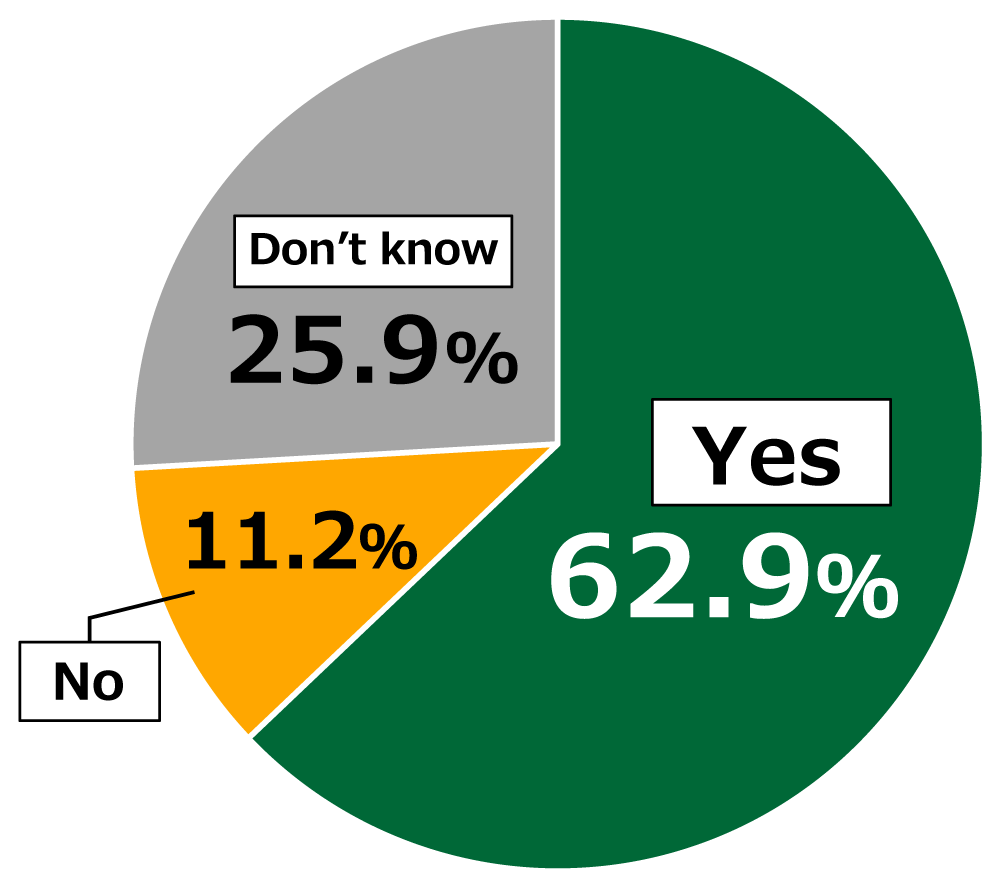
Among all respondents, the sources of renewable energy seen as most promising are: (multiple answers allowed; n = 1,000)
- Solar power – 69.1%
- Hydroelectric power – 39.9%
- Biomass – 34.9%
- Geothermal power – 30.7%
- Onshore wind power – 25.0%
- Offshore wind power – 22.6%
- Other – 0.9%
- Don’t know – 16.0%
Contact
Public Relations Team
The Nippon Foundation
- Email: cc@ps.nippon-foundation.or.jp



